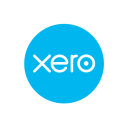QuickBooks vs Melio: Which financial tool is right for your business?
- 01QuickBooks vs Melio: overview
- 02What's the difference between QuickBooks and Melio?
- 03QuickBooks pros and cons
- 04Melio pros and cons
- 05QuickBooks compared to Melio
- 06Melio compared to QuickBooks
- 07Features comparison
- 08QuickBooks vs Melio: Which is the best for your business?
- 09Promotions on Accounting software
- 10Alternatives to QuickBooks & Melio
Access up to $352 savings on QuickBooks & $100 on Melio
Access up to $352 savings on QuickBooks & $100 on Melio
Enhanced productivity, efficient financial management, and overall business success are deeply rooted in how well your payment processing and accounting systems are integrated. Without the right tools in place, managing your finances can become a time-consuming and error-prone task, leading to missed payments, cash flow issues, and ultimately, costly setbacks for your business.
Fortunately, there are several solutions designed to streamline your financial operations. This article compares two leading financial management tools, QuickBooks and Melio, focusing on their primary use cases, key features, and pricing plans. By understanding the main differences between these platforms, you can make an informed decision on which one best meets your business’s financial management needs.
QuickBooks vs Melio: overview
QuickBooks and Melio are well-recognized names in the world of financial management software and payment processing tools. Both platforms offer a robust set of features, making it difficult to determine which one excels in the QuickBooks vs. Melio comparison.
To help you make an informed decision for your business, we've created a detailed comparison table that highlights the key features of each platform. Each criterion is assessed using a star rating system, along with insightful commentary, giving you a clear understanding of the strengths and limitations of QuickBooks and Melio. Explore the table below to guide your choice and align it with your specific financial management needs.
What's the difference between QuickBooks and Melio?
QuickBooks and Melio are popular financial management tools that cater to different aspects of business operations. One critical difference between them is their core functionality. QuickBooks is a comprehensive accounting software, while Melio is a payment processing platform. This distinction is essential when considering which tool best suits your business needs.
QuickBooks is designed to manage all aspects of your business's finances, including invoicing, expense tracking, payroll, tax preparation, and financial reporting. It provides an all-in-one solution for small to medium-sized businesses looking to streamline their accounting processes. QuickBooks offers a range of plans tailored to different business sizes and needs, each including various features such as inventory management, project tracking, and multi-user access. It’s particularly useful for businesses that require detailed financial oversight and want to keep all their accounting tasks in one place.
On the other hand, Melio is focused primarily on simplifying the accounts payable process. It allows businesses to pay vendors and contractors quickly and easily, even if they don’t accept credit cards. Melio’s key features include the ability to schedule payments, automate recurring bills, and manage approvals. It integrates seamlessly with QuickBooks, making it a strong complementary tool for businesses that already use QuickBooks for their accounting but need a more streamlined way to handle payments. Melio offers a pay-per-use pricing model, which can be appealing for businesses looking for a cost-effective solution for managing payments without committing to a monthly subscription.
In summary, QuickBooks is a full-fledged accounting solution with a broad range of features, while Melio specializes in payment processing with a strong emphasis on accounts payable. The choice between them depends on whether your business needs a comprehensive accounting system or a dedicated payment processing tool that integrates with your existing software.

50% off QuickBooks Online for 3 months on QuickBooks
Get 50% off QuickBooks Online for 3 months on QuickBooks and up to $352 savings with Secret.
QuickBooks pros and cons
What are the advantages of QuickBooks?
- Comprehensive financial management: QuickBooks offers a wide range of features, including invoicing, expense tracking, payroll management, and tax preparation. This makes it a versatile tool that can handle nearly all aspects of a business's financial operations.
- User-friendly interface: QuickBooks is known for its intuitive and easy-to-navigate interface, which allows users with limited accounting knowledge to manage their finances efficiently.
- Scalability: QuickBooks offers different plans catering to businesses of various sizes, from freelancers and small businesses to larger enterprises. This scalability allows businesses to start with a basic plan and upgrade as they grow.
- Extensive integration capabilities: QuickBooks integrates with numerous third-party apps and services, including CRM systems, e-commerce platforms, and payment processors. This integration capability enhances its functionality and helps streamline business operations.
- Detailed financial reporting: The software provides robust reporting tools that allow users to generate customized financial reports, offering valuable insights into business performance and helping with strategic decision-making.
What are the disadvantages of QuickBooks?
- Cost: While QuickBooks offers powerful features, it can be expensive, especially for small businesses or startups. The costs can add up with additional features or when scaling up to more advanced plans.
- Learning curve: Despite its user-friendly design, QuickBooks has a steep learning curve for users who are entirely new to accounting software. It may take time to master all its features and functionalities.
- Limited customization: Some users find that QuickBooks' customization options, particularly for invoices and reports, are limited compared to other accounting software.
- Occasional performance issues: Users have reported occasional slowdowns or glitches, particularly when working with large datasets or multiple users. This can be frustrating and disruptive to business operations.
- Customer support challenges: While QuickBooks offers support, some users have experienced difficulties in getting timely and effective help. This can be a significant drawback when facing urgent technical issues.
Compare QuickBooks to other tools
Melio pros and cons
What are the advantages of Melio?
- User-friendly interface: Melio offers an intuitive and straightforward platform, making it easy for users to manage and schedule payments without needing extensive financial knowledge.
- Free ACH payments: Melio allows businesses to make ACH (bank transfer) payments for free, which can help save money on transaction fees compared to other payment methods.
- Flexible payment options: Melio provides flexibility by allowing businesses to pay vendors using credit cards, even if the vendor only accepts checks or bank transfers. This feature can help manage cash flow and earn credit card rewards.
- Integration with QuickBooks: Melio integrates seamlessly with QuickBooks, allowing for automatic syncing of payment data, which reduces manual data entry and the risk of errors.
- No monthly subscription fees: Melio operates on a pay-per-use model, meaning there are no monthly subscription fees. This makes it a cost-effective option for businesses that need a straightforward payment solution without recurring costs.
What are the disadvantages of Melio?
- Limited to accounts payable: Melio focuses primarily on accounts payable, so it lacks the broader accounting features that some businesses might need, such as invoicing, expense tracking, or payroll management.
- Credit card fees: While Melio allows payments via credit card, it charges a 2.9% fee for these transactions. This can add up, particularly for businesses that rely heavily on credit card payments.
- Limited international payments: Melio is primarily geared toward domestic payments within the United States, so businesses needing to make international payments might find its functionality limited.
- No mobile app: As of now, Melio does not offer a dedicated mobile app, which could be a drawback for users who prefer to manage payments on the go.
- Basic reporting features: Melio’s reporting features are relatively basic compared to more comprehensive financial management tools. Businesses looking for in-depth financial analysis might find it lacking.
Compare Melio to other tools
QuickBooks compared to Melio
QuickBooks and Melio serve different financial management needs. QuickBooks is a comprehensive accounting software offering a wide range of features, including invoicing, payroll, expense tracking, and detailed financial reporting, making it ideal for businesses seeking an all-in-one financial solution.
In contrast, Melio focuses specifically on simplifying accounts payable, offering free ACH payments and the flexibility to pay vendors with credit cards. While QuickBooks provides broader accounting capabilities, Melio excels in its streamlined, cost-effective approach to bill payments, particularly for businesses looking to enhance their payment processing without needing a full accounting suite.
Is QuickBooks better than Melio?
Whether QuickBooks is better than Melio depends on your specific business needs. QuickBooks is superior if you require a comprehensive accounting solution that covers all aspects of financial management, from invoicing to detailed financial reporting. It is ideal for businesses that need an all-in-one platform to manage their finances.
On the other hand, if your primary focus is on streamlining and automating accounts payable, Melio might be the better choice. Melio excels in simplifying vendor payments with its user-friendly interface and flexible payment options, making it a cost-effective solution for businesses that don’t require extensive accounting features.
What is QuickBooks best used for?
QuickBooks is best used for managing a business's overall financial operations. It excels in providing comprehensive tools for invoicing, expense tracking, payroll processing, and tax preparation. QuickBooks is particularly effective for small to medium-sized businesses that need an all-in-one solution to handle their accounting tasks efficiently. It offers detailed financial reporting and insights, which help businesses make informed decisions and maintain accurate financial records.
Additionally, its scalability and integration capabilities make it suitable for businesses at different growth stages, ensuring that financial management remains streamlined and consistent as the business expands.
Can QuickBooks replace Melio?
QuickBooks cannot entirely replace Melio, as the two platforms serve different purposes. QuickBooks is a comprehensive accounting software that manages various financial tasks, including invoicing, payroll, and expense tracking. While it includes some payment processing features, it doesn’t offer the specialized, streamlined accounts payable functionality that Melio provides.
Melio excels in simplifying vendor payments, particularly with its ability to pay vendors using credit cards even if they only accept bank transfers. For businesses focused on optimizing payment workflows, Melio complements QuickBooks rather than being fully replaced by it, offering more targeted accounts payable solutions.
Is QuickBooks cheaper than Melio?
QuickBooks’s pricing is generally more expensive than Melio, as it offers a comprehensive suite of accounting tools, including invoicing, payroll, and expense management, which come with a range of subscription plans. These plans can add up, especially as businesses scale and require more advanced features.
In contrast, Melio operates on a pay-per-use model with no monthly subscription fees for its core payment processing services, making it a more cost-effective option for businesses that primarily need to streamline their accounts payable. However, for businesses requiring full accounting capabilities, QuickBooks' broader functionality justifies its higher cost.
Is there a better Accounting software than QuickBooks?
Determining whether there is "better" software than QuickBooks depends on your specific business needs and preferences. QuickBooks is widely recognized for its robust accounting features, including invoicing, expense tracking, payroll, and detailed financial reporting.
However, several other accounting and financial management software options might be worth considering depending on your requirements. Alternatives to QuickBooks include Xero, which offers strong integrations and a user-friendly interface; FreshBooks, known for its simplicity and client billing features; and Wave, a free option ideal for small businesses with basic accounting needs. Each of these platforms offers unique strengths that may better align with certain business models.
50% off QuickBooks Online for 3 months on QuickBooks
Get 50% off QuickBooks Online for 3 months on QuickBooks and up to $352 savings with Secret.
Melio compared to QuickBooks
Melio and QuickBooks serve different, yet complementary, financial functions. Melio specializes in streamlining accounts payable, allowing businesses to schedule and manage vendor payments efficiently, with the added flexibility of paying via ACH or credit card. QuickBooks, on the other hand, is a comprehensive accounting software that handles a broad range of financial tasks, including invoicing, payroll, and financial reporting.
While QuickBooks offers some payment processing capabilities, Melio provides a more focused, cost-effective solution for managing payments. For businesses using QuickBooks, Melio can integrate seamlessly, enhancing QuickBooks' functionality in the specific area of accounts payable.
Is Melio better than QuickBooks?
Whether Melio is better than QuickBooks depends on your business's specific needs. Melio is the better choice if your primary focus is on streamlining accounts payable and managing vendor payments efficiently. It excels in offering a simple, cost-effective solution for businesses that need flexible payment options, such as ACH or credit card payments, without requiring the full suite of accounting tools that QuickBooks provides.
However, if your business needs comprehensive financial management, including invoicing, payroll, and detailed reporting, QuickBooks remains the more robust option. Melio works best as a complementary tool to enhance QuickBooks' payment processing capabilities.
What is Melio best used for?
Melio is best used for simplifying and managing accounts payable processes. It excels in allowing businesses to pay vendors and contractors efficiently, offering the flexibility to make payments via ACH or credit card, even if the vendor only accepts checks or bank transfers. Melio's platform is particularly valuable for businesses looking to streamline their payment workflows without the need for a full accounting suite.
It also provides features like payment scheduling, automation of recurring bills, and an approval process for added control. Melio's ease of use and integration with QuickBooks make it ideal for enhancing payment management.
Can Melio replace QuickBooks?
Melio cannot replace QuickBooks because they serve different financial functions. Melio is designed specifically for managing and streamlining accounts payable, allowing businesses to schedule and process payments to vendors with ease. It lacks the comprehensive accounting features that QuickBooks offers, such as invoicing, payroll, expense tracking, and financial reporting.
QuickBooks provides a full suite of tools necessary for overall financial management, making it essential for businesses that need a broad accounting solution. While Melio can complement QuickBooks by enhancing payment processing, it does not have the capability to replace the extensive accounting functionalities that QuickBooks provides.
Is Melio cheaper than QuickBooks?
Melio is generally cheaper than QuickBooks, primarily because it operates on a pay-per-use model with no monthly subscription fees for its core services. This makes it a cost-effective option for businesses focused on managing payments without needing full accounting software.
In contrast, QuickBooks offers a comprehensive range of accounting features through various subscription plans, which can become more expensive, especially as businesses require advanced functionalities. While QuickBooks provides broader financial management tools, Melio’s lower cost and targeted payment processing capabilities make it a more affordable choice for businesses needing to streamline accounts payable specifically.
Is there a better Payments software than Melio?
The choice of payment processing software depends on your specific business needs. While Melio is a highly effective and user-friendly tool for managing accounts payable and vendor payments, there are several alternatives to Melio worth considering based on your requirements, including Bill.com, PayPal, Veem, Brex, and Square Payments.
The "better" software depends on factors such as the volume of transactions, the need for global payments, preferred payment methods, integrations with other accounting tools, and overall ease of use. It’s advisable to assess each option based on your specific needs and possibly test a few to determine which one best supports your payment workflows and business goals.
$100 cashback on Melio
Get $100 cashback on Melio and up to $100 savings with Secret.
Features comparison
QuickBooks Outperforms Melio in Billing Customization
While both applications boast impressive features, QuickBooks stands out with its unique approach to customizing billing to fit individual business needs. QuickBooks offers more than just basic invoicing; it allows users to tailor their entire billing process to align with their specific business model. For example, businesses can set up automated recurring invoices for repeat customers, customize invoice templates with branding elements, and even schedule reminders for unpaid invoices, ensuring timely payments and reducing losses due to overdue accounts. This level of customization streamlines operations, making it easier for businesses to manage cash flow effectively and maintain strong customer relationships.
In contrast, Melio, while excellent for processing payments, does not offer the same depth of customization in its billing features, focusing more on the payment process itself rather than the broader invoicing and billing management that QuickBooks excels in.
QuickBooks Holds the Edge Over Melio for User-Friendliness
When it comes to ease of use, QuickBooks holds a slight edge over Melio. QuickBooks features a simple, intuitive interface that is designed to accommodate users with little to no accounting background. Its user-friendly experience is further enhanced by comprehensive tutorials, step-by-step guides, and a robust help section that walks users through various accounting tasks, such as invoicing, expense tracking, and payroll management.
On the other hand, while Melio offers a streamlined and focused user interface, its specialization in payment processing might present a steeper learning curve for users seeking a more holistic approach to financial management. For example, those accustomed to QuickBooks' broader feature set might find Melio's narrower focus less intuitive initially, especially when trying to manage tasks beyond payments.
Melio Excels Over QuickBooks in Payment Automation Efficiency
In the question of payment automation, Melio stands out as the more effective solution compared to QuickBooks. Melio is designed with a focus on minimizing manual intervention, allowing businesses to automate payment processes that can save up to 90% of the time typically spent on these tasks. For example, Melio enables users to set up automated payments directly from invoices, ensuring that payments are processed promptly and without the need for constant oversight. This streamlined approach transforms the payment procedure into a seamless system, from the moment an invoice is received to the final payment, reducing delays and improving overall efficiency.
QuickBooks, while offering some automation features, does not match Melio's specialized efficiency in this area, making Melio the preferred choice for businesses prioritizing fast, automated payment processing.
QuickBooks Outshines Melio in Cash Flow Management
As a business owner, maintaining a clear view of cash flow is essential, and in this respect, QuickBooks shines brighter than Melio. QuickBooks offers robust tools for monitoring cash flow by providing real-time access to financial data through secure bank connectivity. This feature allows users to view up-to-date account balances and transaction histories, ensuring they always have the latest information at their fingertips. Additionally, QuickBooks facilitates accurate cash flow forecasting, helping businesses predict future financial needs and avoid potential shortfalls.
For instance, with QuickBooks, users can generate detailed cash flow reports that project income and expenses, empowering them to make well-informed decisions about budgeting, investments, and day-to-day operations. In contrast, while Melio excels in payment processing, it lacks the comprehensive cash flow management tools that QuickBooks offers, making QuickBooks the superior choice for businesses focused on detailed financial oversight and strategic planning.
QuickBooks Shines Over Melio in Integration Capabilities
One of QuickBooks' standout features is its extensive range of integration possibilities, making it highly adaptable for diverse business needs. With the ability to synchronize with over 750 popular business applications, including CRM tools like Salesforce, HR platforms like Gusto, and inventory management systems like TradeGecko, QuickBooks offers businesses the flexibility to seamlessly connect their financial data with their broader software ecosystem. This extensive integration capability allows companies to tailor their financial management processes to align perfectly with their existing workflows, enhancing efficiency and reducing manual data entry.
In contrast, while Melio excels in payment processing and offers impeccable integration with QuickBooks itself, it doesn’t provide the same breadth of third-party integrations. Its primary strength lies in simplifying and streamlining payments, which it does exceptionally well, but its focus on this area means it lacks the broader system integration options that QuickBooks users enjoy. For example, businesses relying on specialized software for project management or customer relationship management may find QuickBooks' vast integration network more advantageous, allowing them to maintain a unified and efficient business operation.
Both QuickBooks and Melio Excel in Digitizing Expense Management
Both QuickBooks and Melio have effectively addressed the shift from paper-based expense tracking to digital solutions, offering robust tools to streamline this critical aspect of financial management. QuickBooks enhances expense digitization by allowing users to scan and upload invoices directly into the platform, where they are automatically categorized and matched to transactions. This feature simplifies the process of tracking expenses and reduces the risk of human error, ensuring that records are always accurate and up-to-date.
Similarly, Melio offers a streamlined approach to expense management with its intuitive dashboard that provides easy access to payment data and expense tracking. Through Melio, businesses can view, manage, and pay all their bills from a single platform, ensuring that all expenses are recorded and tracked efficiently. For example, users can schedule payments and track due dates, helping them stay on top of their financial obligations without the hassle of manual data entry.
Melio Leads QuickBooks in Accelerating Payment Receipts
The speed at which businesses receive payments from clients is crucial for maintaining healthy cash flow, and in this aspect, Melio takes the lead over QuickBooks. Melio’s platform is designed to expedite the payment process, allowing businesses to receive funds within moments by leveraging its streamlined invoice addition and payment features. For example, once an invoice is sent through Melio, clients can quickly process payments using ACH transfers or credit cards, even if the business typically only accepts bank transfers. This rapid payment capability significantly enhances liquidity, enabling businesses to manage their cash flow more effectively and reduce the risk of financial bottlenecks.
While QuickBooks also offers invoicing and payment features, Melio’s specialized focus on fast payment processing gives it an edge for businesses that prioritize quick access to funds to support ongoing operations and growth.
Subscribe to our newsletters.
No FOMO here. Stay up-to-date on all the latest deals and news with our monthly newsletter straight to your inbox like 126,000+ entrepreneurs (+ Get 10% off on on our Premium Membership!)
QuickBooks vs Melio: Which is the best for your business?
QuickBooks is the best tool for you if:
- You need a comprehensive accounting solution that handles invoicing, payroll, expense tracking, and detailed financial reporting, all in one platform.
- Your business requires seamless integration with over 750 popular business applications, allowing you to tailor your financial management system to your unique needs.
- You prioritize real-time access to cash flow information through secure bank connectivity, helping you make informed financial decisions based on up-to-date data.
- Your business processes involve complex billing needs, including automated invoicing, customizable templates, and scheduled payment reminders to streamline operations and ensure timely payments.
- You seek a scalable solution that can grow with your business, offering advanced features and multiple user access as your financial management needs evolve.
Melio is the best tool for you if:
- You need a cost-effective solution focused on simplifying and automating accounts payable without the overhead of a full accounting suite.
- Your business prioritizes fast and flexible payment processing, including the ability to pay vendors via ACH or credit card, even if they only accept checks.
- You’re looking for a platform that integrates seamlessly with QuickBooks, enhancing your existing financial management setup without needing to switch systems.
- You want to streamline your payment workflows, reducing manual intervention by automating bill payments and scheduling transactions efficiently.
- Your business requires a user-friendly interface that focuses specifically on improving cash flow management through timely, accurate, and easily managed payments.

50% off QuickBooks Online for 3 months on QuickBooks
Get 50% off QuickBooks Online for 3 months on QuickBooks and up to $352 savings with Secret.
Alternatives to QuickBooks & Melio
Promotions on Accounting software
Start saving on the best SaaS with Secret.
Secret has already helped tens of thousands of startups save millions on the best SaaS like QuickBooks, Melio & many more. Join Secret now to buy software the smart way.


















